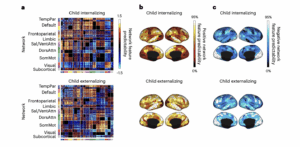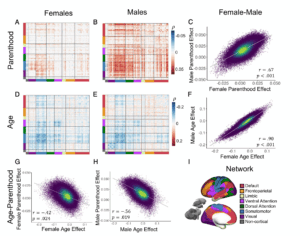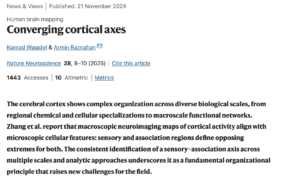Ashlea Segal et al.’s new paper is out now in Trends in Cognitive Sciences: “Embracing variability in the search for biological mechanisms of psychiatric illness”
Read it here: https://doi.org/10.1016/j.tics.2024.09.010
Embracing variability is essential to uncover the biological mechanisms of psychiatric illness. This paper highlights four key issues that limit progress in the field and suggest ways to address them:
(1) Group means (based on current diagnostic definitions) are NOT representative of individuals
—> Normative models offer a framework to characterise individual variability by providing personalised brain maps
(2)Brain regions do NOT operate in isolation but as part of an interconnected network
—> Network-based analytical approaches, such as lesion network mapping, provide insights into the broader network context
(3) There is NO one-to-one mapping between a disorder and its pathophysiological mechanism
—> Integrating information across spatial and temporal scales, in both biology and behaviour, allows for a more nuanced many-to-many explanation
(4) Diagnostic categories are NOT the appropriate phenotypic resolution
—> Deep precision phenotyping of symptomatology leads to a more granular understanding of pathophysiological mechanisms
By addressing these issues, we can make significant strides in understanding psychiatric illnesses. Embracing variability and using advanced analytical approaches will pave the way for more personalised and effective treatments






